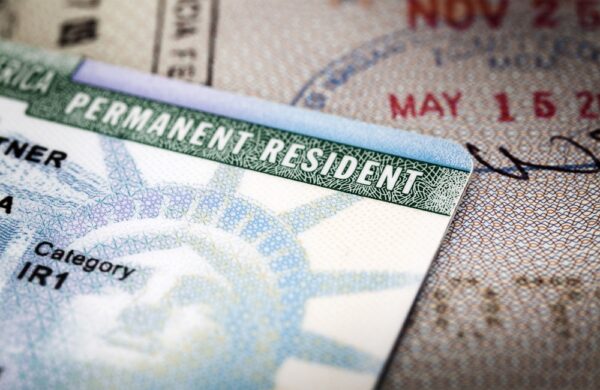Want to work in a culture-rich environment with a rapidly growing economy? Then you shouldn't miss out on work opportunities in Turkey. Turkey is one of the most appealing destinations to tourists and immigrants alike. Most relevant sectors in Turkey have a high demand for foreign skilled workers, and if you're considering working in Turkey, getting a Turkish working visa is an important step. We will discuss in detail Turkey Work visa, eligibility criteria, and the application process for a Turkey work visa.
Benefits of Working in Turkey
The following are the benefits of working in Turkey:
1. Growing Job Market
Turkey's economy is expanding, which brings a strong demand for professionals across various fields. Key sectors such as technology, tourism, manufacturing, education, and finance are thriving, providing many job opportunities for locals and foreigners. Additionally, due to the increase in Turkey's startups and technological advancements, there's a high demand for skilled IT, software engineering, and digital marketing workers. It has a strategic location between Europe and Asia and is also a hub for international trade. This has attracted multinational companies that often seek bilingual or foreign employees. Whether you're in Turkey's growing job market, it definitely has something for you.
2. Rich Cultural Experience
One of the exciting benefits of working in Turkey is its rich cultural atmosphere. Turkey is the perfect mix of Asian, European, and Middle Eastern cultures, which means you can experience a diversity of foods, arts, and customs all in one place. Working in Turkey sure feels like being on a mini vacation.
3. Affordable Cost of Living
If we're being honest, when we compare many Western countries to Turkey, it's clear that Turkey offers an affordable cost of living. This allows you to enjoy a good quality of life without overspending. Major cities like Istanbul and Ankara may seem pricier, but they are still much more affordable than other cities with as much attention as Turkey. The cost of groceries, transportation, and feeding are quite reasonable, so you can save more of your salary or spend it on other essential things. This affordability also extends to health and wellness options and access to good and affordable medical care.
4. A Balanced Work-Life Experience
To stay productive, having a great work-life experience is important, and this is something that you get to enjoy in Turkey. Many organizations in Turkey value personal time and encourage a healthy work-life balance. To know how much personal time is valued in Turkey, the average workweek is 45 hours, except for jobs requiring overtime, which is often compensated. Likewise, many Turkish companies give employees breaks throughout the day and entitlement to vacation and public holidays.
5. Career Growth
With its growing industries, Turkey offers a suitable environment for career growth, especially for foreign professionals with specialized skills. The demand for technology, engineering, finance, and education experts allows international workers to climb the career ladder. Turkey's economic growth has led to increased local and international companies valuing skilled professionals and encouraging training, development, and networking. The country also hosts numerous international conferences and professional events, allowing you to connect with industry leaders, learn, and expand your professional network.
6. Good Work Benefits
Depending on your employer and the industry, working in Turkey can come with appealing benefits. Many companies offer perks like health insurance, which is essential for both expats and locals. Employers may also provide transportation or housing allowances, helping with the transition and daily expenses. Some jobs include meal cards, discounts, or gym memberships, adding more value to your overall compensation package. Turkey also has a pension scheme that, once fully vested, can provide security in the long term. Paid leave is another perk, with employees entitled to annual and paid public holidays. These benefits collectively contribute to a stable and enjoyable work environment, enabling you to focus on career growth and personal well-being while working in Turkey.
Types of Turkey Work Visa
If you're going to work in Turkey, your entry permit and work visa approval by the Turkish Ministry of Labour is important. The general term for a work visa in Turkey is “Working visa.” While there are no distinct work visa types like in most countries, you need to select from the following employment categories depending on what your job role or field of employment is.
- Employment Purpose / Special Employment Purpose
- Lecturers or Academics on Assignment
- Sportsperson on Assignment
- Journalist on Assignment
- Artist on Assignment
- Free Zone Worker on Assignment
- Montage and Repair Technician
Eligibility Criteria and Visa Requirements
The following are the general eligibility requirements for a Turkish work visa:
- Must have gotten a job offer letter or employment contract from a Turkish employer.
- Must be a free zone worker
- Must be a sportsperson, artist, journalist, artisan, or business person.
The following is a list of documents required to apply for a Turkey work visa: - A valid passport and other travel documents
- Passport photographs taken within the last 6 months
- Job offer letter or employment contract
- Medical insurance certificate
- Police clearance certificate
- Proof of accommodation in Turkey
- Academic certificate or license for professional foreign workers.
- Proof of sufficient funds
Application Process For a Turkey Work Visa
To start your journey to working in Turkey, you should follow the following process:
1. Secure a Job offer in Turkey
The first step to starting your application journey is securing a job offer from a Turkish employee through the proper employment procedure. You will need your job offer letter or employment contract to support your application. Also, if your prospective job is in a professional field, your job role must be relevant to the sector. Once you have that, starting your visa and permit applications almost immediately is advisable to avoid unforeseen circumstances.
2. Complete an Online Visa Application Form
You must complete an online visa application form using the Turkish Ministry of Foreign Affairs e-visa portal. Make sure the information you enter is accurate and consistent across all your documents.
3. Double-check and Submit the Required Documents
The next thing you want to do is submit the required document. If you're going through the online application route, you can scan your document and upload it to the necessary site. However, if you want to submit your documents in person, you can do so through the Turkish consulate office in your country of residence.
4. Prepare for a Visa Interview
Some work visas require taking an interview. This will be done at the Turkish consular offices in your country of origin. If your work visa falls into this category, do your best to answer your question well, as your visa approval might be dependent on the interview outcome. You might be asked about your travel history, educational fields, and job role in Turkey. You might also be asked for extra documents, so take all necessary documents with you.
5. Wait For Your Visa Approval
Once you and your employer have fulfilled the necessary work visa requirements, your visa application will be processed. Be positive, and wait for your visa approval.
Turkish Work Visa Processing Time Fees
Turkish work visa processing duration vary based on a foreign nationals country of residence, but generally, it takes as little as 2 weeks and as much as 2 months.
The fees depend on your country of citizenship. Check with the Turkish consulate in your home country to find out the latest work visa fee.
What To Do Once Your Visa is Approved
1. Apply for your Entry and Residence Permit
You need an entry permit to enter the country, so you must get that before you leave your country of citizenship or residency. A residence permit is also important. It's an official document that allows you to stay in Turkey for a specified period.
2. Have Your Travel Documents Ready
All your travel documents must be ready before your travel date. You must have the required documents, such as your original passport, visa, travel insurance, and extra documents like medical insurance, vaccination cards, or police clearance certificate.
3. Book Your Flight Tickets and Pack Your Bags
Finally, once your documents and accommodation are settled, you can book your flight ticket, pack your bags, and prepare to start your employment journey in Turkey.
Turkey Work Visa Renewal and Extension
If you plan to continue working in Turkey beyond your initial visa period, you may need to renew or extend your visa. The renewal conditions differ and are based on your employment type. Most often, people on long-term work contracts can renew as long as they meet the renewal criteria. To qualify for a work visa renewal, you must have a clean record and no record of visa violations. Also, your employer must reapply for the work permit and visa extension on your behalf.
You might have to resubmit some documents during your work visa renewal process. These documents might include a work contract, proof of employment, and updated health insurance. Additional fees may apply, and it's firmly advisable to begin the renewal process a few months before your current visa expires.
Other Things You Should Know About Working in Turkey
To start your Turkey work visa journey, you need a work permit and visa, which you must apply for online or at any Turkish consulate in your home country. Also, you must have secured a job offer with a Turkish employer before processing. The Turkish Ministry of Labour and Social Security is in charge of approving or denying a work visa. Once the ministry approves your visa, you can pay your entry visa see, work permit certificate fee, and residence fee.
While a work visa allows you to work legally in Turkey, it has certain limitations. One of these limitations is that you can only work for the employer and in the position stated in your visa application. If you need to change your job at any time, you must go through a new application process and possibly a new visa. Bringing your family with you to work in Turkey is possible, but only on certain employment types like long-term employment. If you're employment permits, you can bring your partner and children to Turkey. However, they may need to apply separately for residence permits and have limited work rights.
Conclusion
A Turkey work visa is your gateway to exciting job opportunities in a country full of possibilities. By understanding the Turkish working visa, meeting eligibility requirements, and following the correct application procedures, you can begin your journey toward working in Turkey. With proper planning and documentation, you can make your move to Turkey smooth and fulfilling.
















